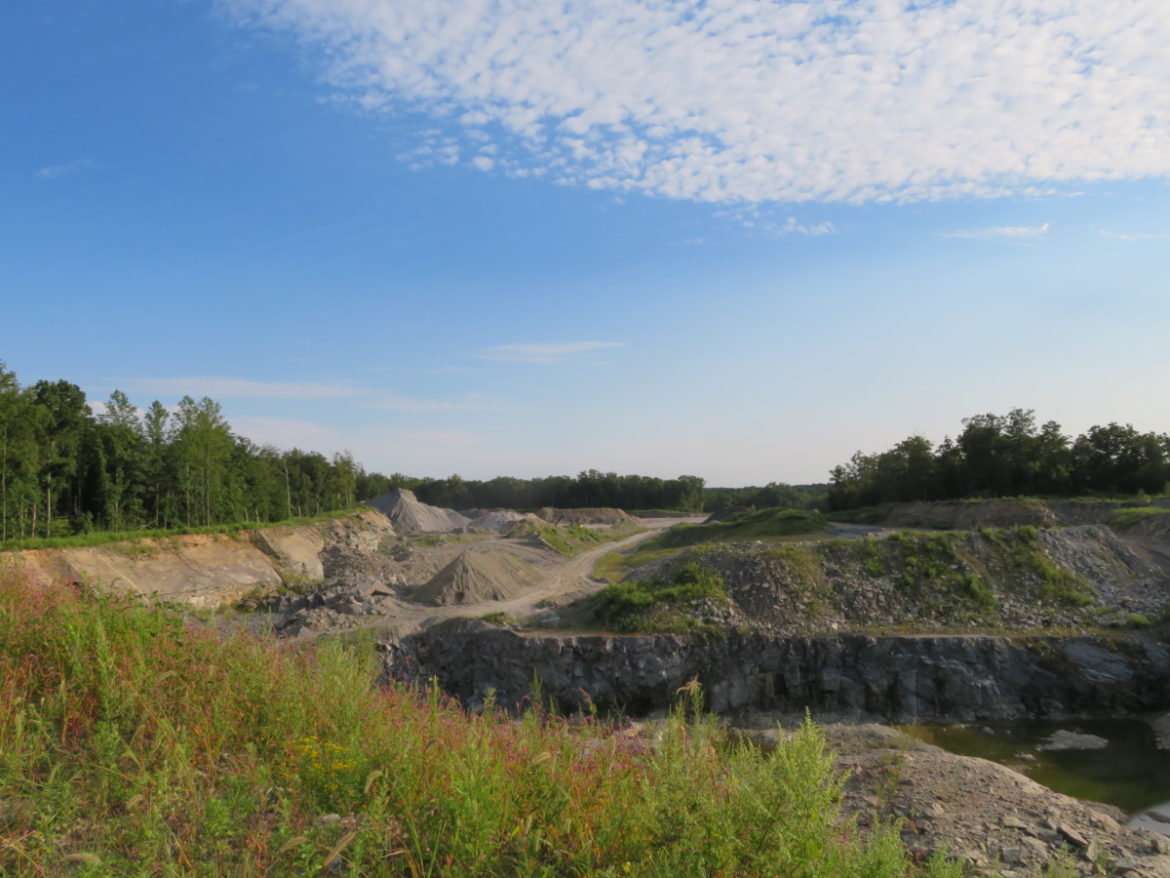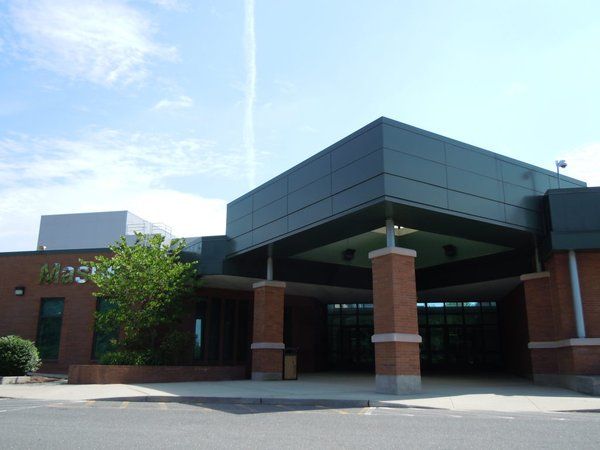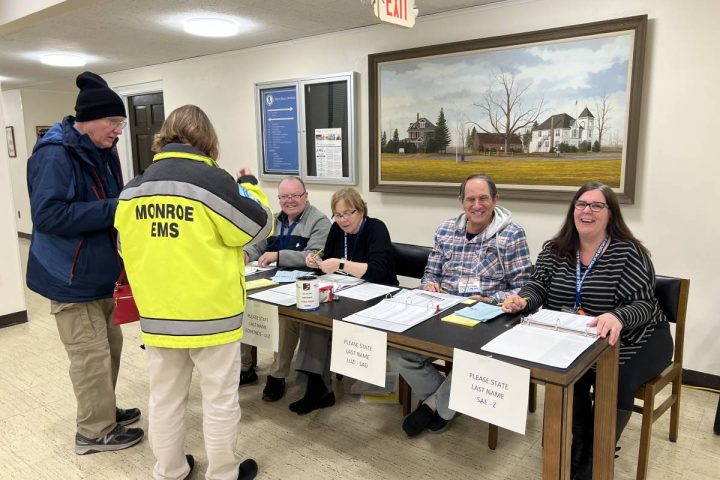MONROE, CT — Owners of two properties in Pepper Street Business Park have a proposal before the Inland Wetlands Commission to remediate environmental violations caused by the previous owner’s illegal quarrying operation.
The proposal is to bring in 980,000 cubic yards of material to fill in a huge hole that was left behind, rehydrate and restore damaged wetlands, and to construct a small office building.
The plan would be done in phases, preparing the commercial properties at 64 Cambridge and 4 Independence drives for development within a period of 10 years. The sites are a total of 72 acres.
During a special meeting Wednesday night, Attorney Joel Z. Green, who represents intervenor Peter Metropoulos, owner of a neighboring property at 36 Timothy Hill Road, was critical of the proposal.
“The intervenor asks that you deny this application,” Green said. “He is the owner of a large portion of property next door that he wants to develop. He is concerned with what’s gone on and the impact on the wetlands.”
Green said his client wants the wetlands violation to be addressed, so both he and his neighbor can develop their own properties. But he contends the application is incomplete and the timetable is too long.
An intervenor is someone who is not a party to an application, but has an interest in it and petitioned for the right to present testimony and have his or her own experts during a hearing.
Green and engineer, David Bjorklund, presented their own remediation plan, not to replace the proposal before the commission, but to illustrate that there are viable alternatives.
“This is a conceptual plan, obviously preliminary,” Green said. “It’s to show there are alternatives that address the violation much more quickly and achieve the goals and objectives of this commission, the hydration of the wetlands we all seek.”
Bjorklund walked commissioners through the conceptual plan, which includes significantly less fill to raise the grade and re-establish the watershed. Green said it could be completed within three years.
Steve Finn, an attorney for the applicants, Astro Land Holdings LLC and Spacely Land Holdings LLC, said if the intervenor really wanted to help, his experts would have submitted an alternative plan early on in the process. He has accused the intervenor’s representatives of only trying to delay the process.
“They’re critical of our plan, but they haven’t presented a feasible alternative,” Finn said. “They came in and suggested a conceptual plan.”
He said his client’s plan offers the best way to move forward.
Prior to his client’s application, Finn said he met with First Selectman Ken Kellogg and other town officials and their main concern was that the huge hole be filled and the property be restored to its prior condition, to the extent possible.
Kevin Solli, of Solli Engineering, the project engineer for the applicant, said they went to Inland Wetlands for approval of the filling operation, because the Planning and Zoning Commission could only approve a two-year-permit. Solli said it would take longer than that to source enough material to fill the hole.
In response to a suggestion that the project be broken up with separate applications for each phase, Finn said the intervenor is likely to appeal any approval, causing a court delay of up to two years, so multiple applications would drag out the process.
Though the previous owner caused the problem, Finn said his client took ownership of it and Solli and Bill Kenny, a soil scientist and landscape architect from Fairfield, did a full assessment of the properties and came up with a plan to remediate it.
Finn said they were always upfront about the time frame.
He pointed out how Russell Dirienzo, a licensed environmental professional hired to consult the commission, said the proposal would have no negative impact on the watershed. No one demonstrated unreasonable pollution or impact to the wetlands, Finn added.
Though Dirienzo expressed his professional opinion that the wetlands and vernal pool restoration plan has a 30 percent chance of succeeding, Finn noted that Kenny, a respected soil scientist “with a track record of success,” said he thinks it will work.
“I’m 100 percent confident that this wetland can be restored and be high quality,” Kenny said, adding he has studied wetland rehydration for over three decades and been involved in many projects like this. “We never said we would restore it to mimic Mother Nature.”
Kenny said the fact that the intervenor offered an alternative plan shows rehydration can be done.
If the commission approves the remediation plan and it fails, Finn said it could still be addressed in the future.
“Restoring wetlands is the ultimate goal you want to achieve,” he said. “Give this plan a chance, and if it doesn’t work, the violation would still exist and you can enforce it.”
If the plan is approved, Arnold Karp, managing partner of the two LLCs that own the properties, said rehydration of the wetlands could start by the spring and promised to work with the town throughout the project.
“We will do anything necessary to make this work,” Karp said. “Of course, it has to be economical from our point of view. Restoration works and it could work now. I believe we have a solution that could be a model for the town with an approval — and all the safeguards are in place.”
Dirienzo said he thought a 10-year-window to complete the project is “ridiculous,” and that it was wrong that no other remediation alternatives were offered should the plan not work.
He also said construction of an office building and filling the hole should not be tied to the wetlands remediation plan, while expressing his preference for three separate applications.
The commission closed the hearing and will deliberate on the application in January. It has about 50 days to make a decision. The property owners also have an application before the Planning and Zoning Commission.






